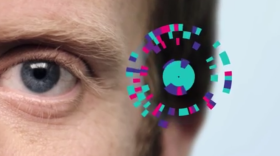
Scott Hensley
Scott Hensley edits stories about health, biomedical research and pharmaceuticals for NPR's Science desk. During the COVID-19 pandemic, he has led the desk's reporting on the development of vaccines against the coronavirus.
Hensley has worked on award-winning investigations in collaboration with journalistic partners.
He was the lead NPR editor on an investigation with the Center for Public Integrity in 2018 that exposed drug industry influence on the choices of preferred medicines by Medicaid programs. The work won the 2019 Gerald Loeb Award for audio reporting.
In 2017, Hensley was the lead NPR editor on an investigation with Kaiser Health News that showed how the pharmaceutical industry exploits government incentives intended to encourage the development of treatments for rare diseases. The stories won the 2019 digital award from the National Institute for Health Care Management.
Hensley has been editing in his current role since 2019. He joined NPR in 2009 to launch Shots, a blog that expanded to become a digital destination for NPR health coverage.
Before NPR, Hensley was a reporter and editor at The Wall Street Journal. He was the founding editor of The Wall Street Journal Health Blog, which focused on the intersection of health and business. As a reporter, he covered the drug industry and the Human Genome Project.
Hensley served on the board of the Association of Health Care Journalists from 2012 to 2020.
He has a bachelor's degree in natural sciences from Johns Hopkins University and a master's in journalism from Columbia University.
Before becoming a journalist, Hensley worked in the medical device industry. He remains, now and forever, a lover of Dobermans, lacrosse and Callinectes sapidus.
-
Researchers focused on the activities outside business hours. And they found that your behavior beyond whatever you're doing to make a living appears to affect your chances of heart failure. To minimize the risk, walk when you can and sit only when you must.
-
Acetaminophen overdoses, many of which are inadvertent, are a leading cause of acute liver failure. People taking several kinds of drugs may not realize that more than one of them can contain acetaminophen.
-
Just about everybody was watching to see how many young people signed up for health insurance during the first three months that the new exchanges were open. Younger people are generally healthier, and their premiums tend to balance out insurers' outlays for older, sicker people.
-
While the proportion of the world's population that smokes has shrunk, the total number of smokers on the earth continues to rise. In 2012, nearly a billion people smoked daily, compared with 721 million in 1980.
-
Keep the dog away when you're shoveling snow. Some can't resist jumping toward the flying flakes, and a dog is no match for a shovel blade. The sweet taste of antifreeze can be enticing for pets, but ethylene glycol, the main antifreeze, is also quite toxic. Clean up spills and drips.
-
The Food and Drug Administration just approved United Therapeutics' Orenitram, a pill for the treatment of pulmonary arterial hypertension. Martine Rothblatt founded the company to develop treatments for life-threatening illness that afflicted her daughter.
-
The legal wrangling over who should be allowed to buy the Plan B One-Step morning-after pill without a prescription came to an end this year. A federal judge ruled that the emergency contraceptive couldn't be withheld from girls 16 and younger. Despite the legal ruling, many Americans support age minimums and parental consent.
-
Drugmakers learned long ago that deputized doctors are effective pitchmen. A doctor's dinner speech or chat over lunch with colleagues can go a long way toward changing his or her colleagues' prescribing habits. But increasing scrutiny has led to a reconsideration of the practice.
-
While the company tries to work things out with regulators, it won't be telling people who buy its test if their genetic profiles predispose them to particular illnesses or predict their responses to prescription drugs.
-
The august medical journal JAMAcreated a kitsch masterpiece for the cover of its annual issue dedicated to medical education. A group of seven canine healers, some apparently in training, hover around a sick mutt sucking on a thermometer in a hospital bed. They look an awful lot like some poker-playing dogs from yesteryear.









